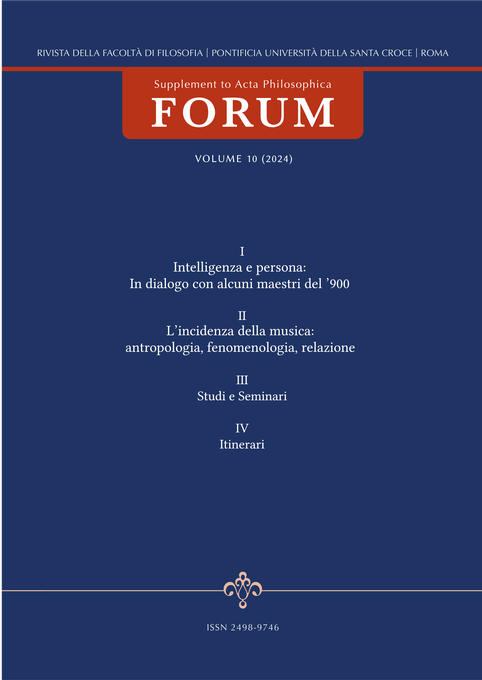"What makes you yourself?" Scotus' Question, a Pitfall for Thomists
DOI:
https://doi.org/10.17421/2498-9746-10-08Keywords:
Thomas Aquinas, John Duns Scotus, Individuation, Identity, Materia signataAbstract
The article’s main thesis is that Thomas Aquinas’s teaching that the principle of individuation for corporeal natures is “signate matter” has been misunderstood for centuries, because the matter in question has been taken to be prime matter. Thomas never says it is prime matter, and he very often identifies it with particular sensible matter or with the individual’s body. This misunderstanding may account for much of the serious disagreement that can be observed among the accounts of individuation offered by past and present Thomists. The article suggests that the misunderstanding might have arisen from excessive haste on the part of Thomists to respond to John Duns Scotus’s account of individuation and to his criticisms of accounts resembling Thomas’s. Correcting this misunderstanding helps to see how very different Scotus’s and Thomas’s approaches to individuation are and to bring out what would be needed for a genuine encounter between the two positions.



